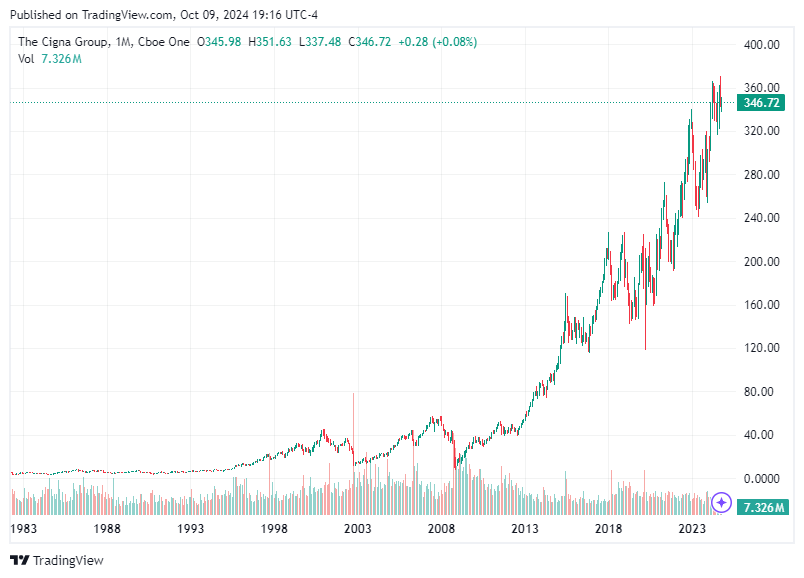CVS and Cigna Challenge FTC Officials In Insulin Case
CVS and Cigna's Legal Challenge Against FTC Officials in Insulin Case: An Examination.

Disclaimer: The following article is intended for informational purposes only and does not constitute legal advice or professional recommendations. The content reflects current events and legal proceedings, which are subject to change. Readers should consult appropriate professionals for specific guidance and remain informed through official channels.
The ongoing legal landscape of the pharmaceutical industry is being reshaped by a notable challenge posed by CVS Health Corp. and Cigna Group against officials of the U.S. Federal Trade Commission (FTC). At the heart of this dispute lies the management of insulin prescriptions and the potential bias of FTC officials in related proceedings.
The Legal Framework and Background
The clash between CVS, Cigna, and the FTC centers around the agency's allegations of unfair trade practices by pharmacy benefit managers (PBMs) in the administration of insulin prescriptions. According to the FTC, units within CVS, Cigna, and UnitedHealth have engaged in practices that illegally excluded lower-priced insulin options from their lists of approved drugs, thereby inflating costs for consumers. These allegations have prompted the FTC to file a case within its own administrative court, a move that has sparked considerable controversy.
The involvement of key FTC officials, particularly Chair Lina Khan and Commissioners Rebecca Kelly Slaughter and Alvaro Bedoya, has been contested by CVS and Cigna. The companies argue that the public statements and historical positions of these commissioners suggest a prejudgment of the case, thus calling into question their impartiality. Central to CVS and Cigna's legal approach is their motion to disqualify the three Democratic commissioners from overseeing the case. This motion is based on claims of bias stemming from the commissioners' past statements and affiliations. CVS has cited Chair Lina Khan's extensive public critiques of PBMs, dating back to her law school days, as indicative of a predisposition against the industry.
The companies have highlighted commissioners' participation in events organized by groups critical of PBMs, suggesting that such engagements further emphasize a lack of impartiality. At one such event, materials reportedly depicted PBMs in a negative light, using imagery of "bloodsuckers" and vampires, which CVS argues is emblematic of the commissioners' biased stance.
The FTC's Position and the Role of Ethics
The FTC has maintained that its actions are aligned with its mandate to ensure fair competition and consumer protection in the pharmaceutical market. The agency's focus on PBMs stems from concerns about their considerable influence on drug pricing and access. The FTC's enforcement action represents a broader effort to address practices that may hinder market competition.
However, the motion to disqualify the commissioners has placed a spotlight on the ethical considerations within administrative proceedings. Typically, commissioners consult with agency ethics officials to determine whether recusal is warranted. In previous instances, such as the case involving Meta Platforms Inc., Chair Khan has opted not to recuse herself despite ethical advisories, highlighting the complex interplay between legal obligations and ethical considerations. The outcome of CVS and Cigna's challenge against the FTC could have extensive consequences for the pharmaceutical industry, particularly regarding the regulation of PBMs. Should the commissioners be disqualified, it may set a precedent for how perceived biases are addressed in regulatory disputes. Conversely, if the commissioners remain involved, it could affirm the FTC's authority to pursue cases despite allegations of bias.
The broader outcomes of this case extend to the balance between regulatory oversight and industry autonomy. PBMs play a critical role in the healthcare system by negotiating drug prices and determining formulary lists. However, their practices have come under scrutiny for potentially limiting access to affordable medications. The resolution of this case could influence future regulatory approaches to ensure that PBMs operate in a manner that benefits consumers without stifling competition.
The legal battle between CVS, Cigna, and the FTC highlights the complexities of regulating the pharmaceutical industry in a manner that balances consumer protection with fair business practices. The challenge to disqualify FTC commissioners on grounds of bias raises important questions about the role of personal and professional history in regulatory oversight.
As this case unfolds, stakeholders in the healthcare and legal communities will be closely monitoring the proceedings for insights into the evolving dynamics of industry regulation. The decisions made in this case will likely resonate beyond the immediate parties involved, shaping the contours of pharmaceutical regulation and legal accountability in the years to come.
Disclaimer: This article is for informational purposes only and does not constitute legal advice. Readers should seek professional counsel for specific guidance and remain updated through official sources.
We are working endlessly to provide free insights on the stock market every day, and greatly appreciate those who are paid members supporting the development of the Stock Region mobile application. Stock Region offers daily stock and option signals, watchlists, earnings reports, technical and fundamental analysis reports, virtual meetings, learning opportunities, analyst upgrades and downgrades, catalyst reports, in-person events, and access to our private network of investors for paid members as an addition to being an early investor in Stock Region. We recommend all readers to urgently activate their membership before reaching full member capacity (500) to be eligible for the upcoming revenue distribution program. Memberships now available at https://stockregion.net


